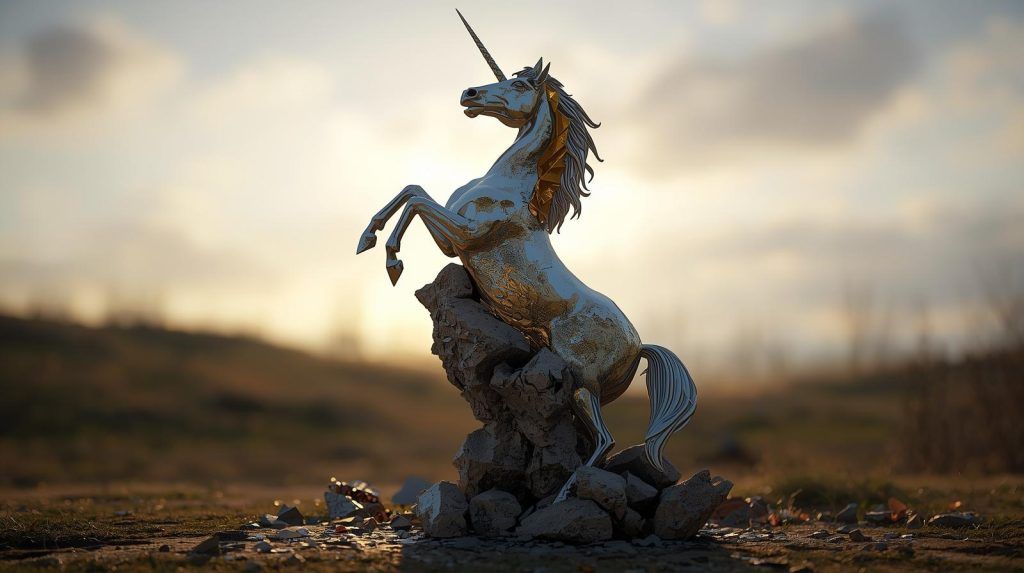At the right, forestage, a desk. This is Mr Alfieri’s law office.
These are the only stage directions that the lawyer’s office warrants in Arthur Miller’s A View from the Bridge: a desk, nothing more, nothing less. The law, after all, is a simple thing that can be understood in black and white. Either something is lawful or it is not.
That viewpoint is of course challenged at the end of the play (if you are concerned about spoilers for a 70-year-old play, look away now) when an Italian immigrant to the US, Marco, asks Alferi what will happen to the man who ratted him out to the authorities. “Nothing,” says Alferi, “if he obeys the law, he lives. That’s all.” Marco’s response, concerned with honour, is simple:
“The law? All the law is not in a book.”
As a lawyer, I should probably side with Alfieri’s conclusion of “yes. In a book. There is no other law.” The law should be black and white. If there is copyright infringement, then it should be acted against, and if there is not, then that should be the end of it. However anyone with any familiarity in intellectual property law knows that is not the case. For example, often a rightsholder simply doesn’t have the resources to act against an infringer. Alternatively, a defendant may not have the ability to pursue a credible defence all the way to trial, and may instead have to settle. Sometimes whether infringement is stopped may just be a point of simple fairness or pragmatics.
Whether it is an actual defence of fair use, that might be applicable for example in the United States, or merely a commercial practicality that might lead a rightsholder not to take legal action in New Zealand, there exists somewhere beyond a legal textbook a sense of whether certain infringements are worthwhile to pursue or not. And I think two recent examples of this highlight a valuable lesson for anyone considering activities which might attract the attention of rights holders: don’t get greedy.
Threatening the Library of Babel
Jorge Luis Borges once imagined a universe as a library, all the books within containing every single possible ordering of the alphabet. Within this universe are the Purifiers, who destroy those books they consider to be pointless.
The closest we have come to the Library of Babel is probably the Internet Archive’s Open Library. Originally launched in 2006, and redesigned in 2010, it contained over 1.4 million books. The system was relatively simple to understand. The Internet Archive would come into possession of a book. It would make an electronic copy of the book. It would then allow users to check out a copy to read.
Importantly, the Open Library had a one-out, one-in system, i.e., it would only lend the number of books that it had in its possession. If it only had one physical copy of the book, then only one person could access the electronic copy at a time. It was this system that allowed the Open Library to operate despite complaints from the publishing industry. Publishers and (some) authors had an understandable view of the matter: by scanning a copy of the book, the Open Library was making a copy. It was then issuing that copy to the public without the approval of the copyright owner. Unlike an actual library, the Open Library was not paying a license fee to conduct its lending.
The Open Library’s defence was that its conduct fell under exhaustion and fair use principles, i.e., that just like a second-hand bookstore is allowed to resell books after the first sale, it was allowed to use its own copy of the book to lend to users. The obvious flaw in that argument is that the digital act of scanning the book was making a new copy, but regardless, its conduct carried on without legal action. Because not all the law is in a book. Because regardless of the black and white legal question of infringement, and despite complaints from rightsholder, no one considered it either justifiable, worth the risk of adverse publicity, or economically viable to stop it.
Until the Open Library did, let us charitably say, a very interesting thing.
During Covid in 2020, and the lockdown of public libraries, the Open Library announced a National Emergency Library. It removed the controlled one-in, one-out system, and allowed the digital copies to be distributed to as many users that wanted them. What happened next was obvious. They got sued. The major publishers, supported by a number of authors, filed copyright infringement proceedings against the Open Library. Just as unsurprisingly, both the US District Court and the US Court of Appeal found that provision of the National Emergency Library was copyright infringement. Further, it was found that “even full enforcement of a one-to-one owned-to-loaned ratio[1]… would not excuse reproduction” of the books.[2]
There was a lot of criticism of the decision at the time, and the publishers for taking action. Like Borges’s Purifiers, a great resource was being destroyed. The sentiment arguably has a grain of truth in it but is pointed in the wrong direction. Because, without the decision to remove the one-in, one-out system, it is very possible that there would never have been any proceeding, any decision, and the Digital Library of Babel may not have found itself confronted with its own form of the Purifiers.
The turtle who flew too close to the sun
There is, as there always is, a wonderful passage from Terry Pratchett in his novel, Small Gods, about the legend of eagles dropping tortoises from a great height to crack their shells, and the day a tortoise would learn how to fly. When I first read it, I somehow found it merging with the story of Icarus. You may consider this a stretch. However I would merely point out that the story goes that the father of Greek tragedy himself, Aeschylus, was killed by an eagle dropping a tortoise on his head.
Over the last month or so, another turtle flew too close to the sun. On 29 August 2025, Blizzard Entertainment, Inc filed copyright infringement proceedings against “Turtle WOW”. To avoid delving too deep into the specifics:
- Blizzard Entertainment is the company behind World of Warcraft, the video game that you almost definitely heard of in the 2000s, and that you may be surprised to learn is still played by over 5 million people in 2025.
- People crave nostalgia and there remains a strong demand for a form of the game that existed when it was first released in 2004. Blizzard Entertainment itself attempted to meet that demand by offering a “Classic” form of their game. But there exists a variety of “private servers”, i.e., non-sanctioned servers from third parties who offer various forms of “Classic World of Warcraft”.
Turtle WoW is one such private server. Now, as an intellectual property matter, by the book this is a simple case. Turtle WoW has lifted wholesale the original game released in 2004, and has made additions to that game with further exploitation of Blizzard Entertainment’s intellectual property. It is, not to get ahead of any formal legal determination, as close as you can get to an open-and-shut case.
However it may surprise you to learn that Turtle WoW released in 2018. It has been running for seven years, and for at least the last two years was relatively well-known in the industry. This seems not to be the case of Blizzard Entertainment being unaware of someone infringing its intellectual property, but instead one where such use must have been seen by it as relatively unproblematic and not worth the time and resources (and potential adverse publicity) to enforce. There are plenty of these private servers after all, and many are run at cost by fans of the original game with no financial reward.
So, what changed? Turtle WoW’s conduct. Over the last year or so it undertook, let us generously say, some questionable choices in its direction. It started to solicit donations. It started to advertise aggressively on social media, including engaging with Blizzard Entertainment’s official accounts and offering itself as a better alternative. It also announced that it was involved in a “remaster”, moving World of Warcraft’s ancient engine to Unreal Engine 5 to create a more visually enhanced form of the game. At which point, Blizzard Entertainment sued.
The similarities with the Open Library case are striking. In each you have a party doing something that legally we would expect would be determined as copyright infringement, but for years they were allowed to do it because it simply wasn’t causing enough trouble with the rightsholders. Then, emboldened and ambitious, each has crossed some invisible commercial (and not legal) boundary and has found their entire conduct for many years called into question.
“Now we settle for half and I like it better”
If you were to come into my office, where there is a desk and perhaps not much else, my advice to anyone would be simple: don’t infringe anyone’s intellectual property rights.
But, as we know, all the law is not in a book. Perhaps there are questions as to who owns the rights, whether the rights are valid, whether you actually infringe those rights, and so on. Perhaps there are commercial considerations as to whether those rights would ever be enforced. But if you ever find yourself in those situations, there are lessons to be learnt from the cases above. Whether there is a statutory defence of fair use or not (and in New Zealand and Australia, there is not), you will find yourself in a less precarious situation if you consider the situation and your conduct through the lens of fairness and, some might even say, honour. Ask yourself: Is what I’m doing going too far? After all, Alferi notes that in changing from the life and death of Italian honour to the due process of the legal system, “now we settle for half, and I like it better”. He no longer must keep a pistol in his filing cabinet. Settling for half, and not making yourself problematic to the rightsholder, may just end up with a less messy outcome.
About the author:
James Rowland is a Senior Associate in James & Wells’ litigation and commercial team. James’s practice, while extending across a range of intellectual property rights, is centred predominantly on the obtaining and enforcement of patent rights. Frequently working across teams and in multi-jurisdictional disputes, James has worked on matters for a variety of clients, including international companies in the life sciences, medical devices, and food industries, and local New Zealand businesses of all sizes.
[1] That is, the Open Library’s original lending model.
[2] Hachette Book Group, Inc. v. Internet Archive, No. 20-cv-4160 (JGK), 664 F.Supp.3d 370 (S.D.N.Y. 2023), WL 2623787 at page 32. The judgment was affirmed on appeal in Hachette Book Group, Inc. v. Internet Archive, 115 F.4th 163, 176 (2d Cir. 2024).










